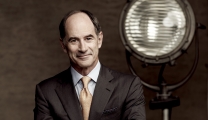What sort of transformation happens to a person when they go from being a customer to an advocate of a brand?’
What has to happen in their brain? There are motivating factors that have been tested and ranked in scientific studies, as you might expect. The reasons have been broken down to their atomic elements, which is one way to answer the question. One 2015 study in the Journal of Business Research, cited more than 300 times, identifies eleven different reasons customers are motivated to join a brand community.

Workback reader, ask yourself how many of these factors would influence you and to what degree:
- You want to influence the brand.
- You have passion for the brand.
- You want to connect with other customers.
- You want to help other customers.
- You want to have a like-minded discussion with other customers.
- You’re swayed by entertainment, fun, and VIP treatment.
- You like rewards like price discounts and access to new features.
- You need help from the community.
- You want to express yourself and share your views or opinions about the brand.
- You need the latest up-to-date information about the brand.
Hey, you just want to be validated. The community can do that for you.
The swirl of reasons a customer joins a brand community can be measured, stress-tested, and ranked, but there’s also maybe a less scientific-feeling reason people join a community for a brand. It’s maybe less science and a little more magic: People really like it.
In the past five years, Zerkel has helped to grow the Asana community from a single text-based online forum to live events worldwide. We had many questions: What does it take to start a community? What’s a real-life community event like? How do well-established companies start a community?
Below is an abbreviated conversation with Zerkel about how he built the Asana community and what business leaders can do to create their community. And also, where does community marketing fit on the org chart (“it kind of fits in between all the moments of a customer’s lifecycle,” Zerkel says.”)
How should companies think about starting a community?
I’d ask them what the main goal of the business is now: Is it to gain brand awareness? Is it to deepen customer relationships? Is it to generate more sales? Those things can be fostered via community, but they are all very different.
The main thing is to get really clear on what you’re trying to achieve. Because the challenge with community—because it’s often very new for most companies—is that it can do many different things. Whatever you’re building, stakeholders may think the most important thing to them is what you’re building the community for.

Is there a finite amount of time when a company can think about creating or fostering a community for a product?
It’s never too late. However, it is easier at certain points in the lifecycle. If you are building something new, or you’ve launched your company or product more recently, usually there will be people who really, really are excited about it before others have become aware of it.
That is an excellent opportunity to start fostering a community, even if it’s a more informal one, where you just have a group of people you’ve identified who really like what your company is doing.
You could ask them, “Hey, we’re thinking of starting a community program. What might you like to see in it? How could we help you?”
Why are roles like Ambassador important for a community’s health?
There’s the lowercase-c community, and there’s the capital-C community. These are people who are raising their hand and want more involvement. There are different ways to look at the profile of the type of intent. People attracted to being an Ambassador have a different level of intent toward the brand than those who don’t. We want to ensure we are meeting people where they are with the programs we put together.
What makes you enthusiastic about doing this kind of work?
The part that’s really energizing is when I actually meet customers, especially those who are self-selected into our community, like Ambassadors, or those who come to one of our community events.
They talk about their connections in the Asana community in a way that feels really authentic to them. We’re not putting any words in their mouth. This isn’t a structured, user-research type of interaction. It’s them saying what’s going on for them and their experience. And for me, that is awesome.












Replies to This Discussion